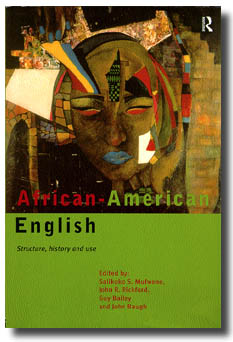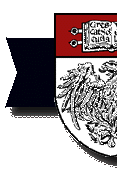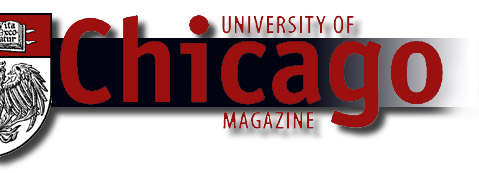 |

 Talking
the talk Talking
the talk
Two
years ago, the Oakland, California, School Board decided to require
teachers to acknowledge the vernacular of their African-American
students, sparking a national debate over whether African-American
speech should be viewed as a distinct language. African-American
English: Structure, History, and Use (Routledge), released in April,
represents the contributions of Salikoko S. Mufwene, PhD’79, the
chair of the U of C linguistics department, and three other language
scholars to this ongoing discussion. The editors compare the vernacular
not to standard English but to other variations, such as Appalachian
English and Ozark English, because of their concurrent development
and common syntactic features, challenging linguists to look harder
at the role played by social factors in its construction.
Discovered:
Cosmic rock band
An
international group of researchers, including associate professor
of geophysical sciences David Rowley, reported in the March 12 issue
of Nature that a crater chain strung across two continents suggests
that a fragmented comet crashed into Earth over a few short periods
of time some 214 million years ago, resulting in a mass extinction
of most of the planet’s plant and animal life. Three of the five
craters—the Rochechouart in France and the Manicouagan and the Saint
Martin in Canada—were at a northern latitude of 22.8 degrees, forming
a nearly 5,000-kilometer-long chain. The other two—the Obolon in
Ukraine and the Red Wing in Minnesota—line up with the Rochechouart
and the Saint Martin craters, respectively. Though all of the craters
had been well-studied, their alignment had never before been identified.
Rowley puts the chance of the band being formed randomly at zero.
Modern
classics...
How
can the analects of Confucius, the dialogues of Plato, the poetry
of Yeats, and other classic texts possibly be applied in today’s
world? According to humanities professor Herman Sinaiko, AB’47,
PhD’61, such works can help modern readers explore the human condition,
deepening their understanding of themselves and the world around
them. In Reclaiming the Canon: Essays on Philosophy, Poetry, and
History, published in April by Yale, Sinaiko draws on decades of
teaching to illuminate what he believes can still be learned from
the Iliad, Anna Karenina, and other masterpieces spanning the past
25 centuries.
|



